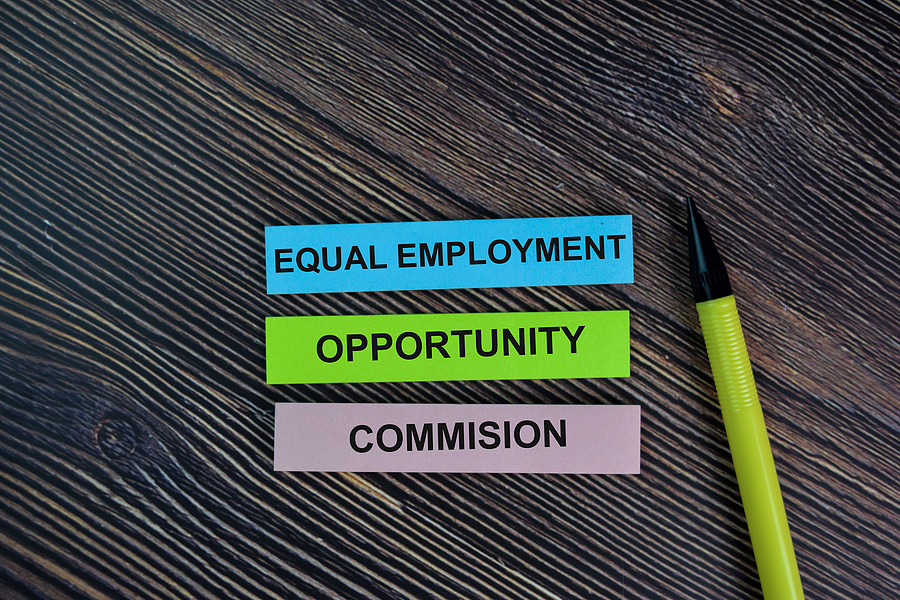
Loyal readers may be wondering if this is yet another Fair Credit Reporting Act (FCRA) article. Well, ok, yes. But we’ll also be discussing U.S. Equal Employment Opportunity Commission (EEOC) guidance, as well as liabilities “hiding” in a background check.
What you don’t know can hurt you. So, let’s dive in.
Common Misconceptions
Many employers believe they can simply not hire an applicant—or that they can take negative action against a current employee—based on the results of an employment-related background check report (i.e., consumer report).
It’s not that simple.
If an employer bases their decision to take adverse action in whole or in part due to the results of a consumer report, they must follow the pre-adverse and adverse action procedures outlined in the FCRA. This includes providing the following to the consumer (applicant/employee) before taking any adverse action:
- A notice about the intent to take adverse action
- A copy of the report
- Contact information for the consumer reporting agency (CRA) that compiled the report
- A notice that the CRA did not make the decision to take adverse action and that the consumer can dispute the accuracy or completeness of a report with the CRA
- The FCRA document, “A Summary of Your Rights Under the Fair Credit Reporting Act”
After notifying the consumer, the employer must wait a reasonable period of time to allow the consumer to dispute the accuracy of the report, typically a minimum of one week. If the consumer does not dispute the report, the employer needs to follow the adverse action process, which includes providing notice of the action, the CRA’s contact information, a copy of the report, and the FCRA summary of rights document.
State laws may require additional steps.
Once those steps are followed, the employer can take adverse action based on any negative findings in the consumer report, right? Not really. Here’s where the EEOC comes in.
Information that Can and Can’t Be Used
The EEOC limits what information from a background check can be used if an employer wants to take any adverse action. Specifically, the information must be job-related and consistent with business necessity. For example, a misdemeanor bad check conviction may not be related to that person’s ability to drive a bus.
EEOC enforcement guidance says an employer or potential employer must “inform the individual that he may be excluded because of past criminal conduct; provide an opportunity to the individual to demonstrate that the exclusion does not properly apply to him; and consider whether the individual’s additional information shows that the policy as applied is not job-related and consistent with business necessity.” The guidance lists examples of other individualized evidence, including:
- The facts or circumstances surrounding the offense or conduct
- The number of offenses for which the individual was convicted
- Older age at the time of conviction, or release from prison
- Evidence that the individual performed the same type of work, post-conviction, with the same or a different employer, with no known incidents of criminal conduct
- The length and consistency of employment history before and after the offense or conduct
- Rehabilitation efforts, e.g., education/training
- Employment or character references and any other information regarding fitness for the particular position
- Whether the individual is bonded under a federal, state, or local bonding program
Specific jurisdictions may also mandate these types of assessments. For example, New York City’s Fair Chance Act requires an individualized assessment about criminal records. The assessment is similar to the EEOC’s guidance and, as stated in the enforcement guidance provided by the NYC Commission on Human Rights, requires that employers:
- Disclose to the applicant a written copy of any inquiry conducted into the applicant’s criminal history
- Share with the applicant a written copy of its Fair Chance Analysis
- Allow the applicant at least five business days from receipt of the inquiry and analysis to respond to the employer’s concerns
There are other EEOC issues, such as disparate treatment and/or impact against protected classes, but that’s beyond the scope of this blog. As always, this blog is not meant to be legal advice, and this is a complex issue. With all employment-related legal matters, we recommend consulting with an attorney to ensure compliance and to avoid potentially costly sanctions and/or litigation.












